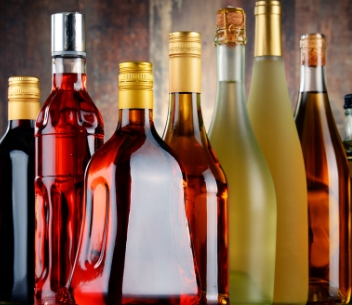Issue of State Governments Power to Levy Excise Duty on Industrial Alcohol
The Supreme Court is currently hearing arguments on whether state governments have the power to regulate and control the sale, distribution, pricing and other factors relating to ‘industrial’ alcohol. The case has been referred to a 9-judge Bench headed by Chief Justice of India D Y Chandrachud.
Background
The case originated from a notification issued by the Uttar Pradesh government in 1999, introducing a 15% fee for any sale made to licence holders under the UP Excise Act, 1910 for “alcohol used directly or…as solvent for vehicles and appear[ing] in the final product to some extent”.
This was challenged by a motor oil and diesel distributor who claimed that the Centre exercised exclusive jurisdiction over industrial alcohol as per Section 18-G of the Industries (Development and Regulation) Act, 1951 (IDRA).
Constitutional provisions
The case revolves around the interpretation of the following entries in the Seventh Schedule of the Constitution of India:
- Entry 8 in the State List: This entry gives states the power to legislate on the production, manufacture, possession, transport, purchase and sale of “intoxicating liquors”.
- Entry 52 of the Union List and Entry 33 of the Concurrent List: These entries mention industries, whose control is “declared by Parliament by law to be expedient in public interest”. Notably, subjects in the Concurrent List can be legislated upon by both states and the Centre, but where a central law exists, the state law cannot be repugnant to it.
- Industrial alcohol is listed in the Industries (Development and Regulation) Act, 1951 (IDRA).
Previous Supreme Court judgments
In 1989, a 7-judge Constitution Bench in ”Synthetics & Chemicals Ltd v. State of Uttar Pradesh” held that states’ powers, as per Entry 8 of the State List, were limited to regulating “intoxicating liquors” which are different from industrial alcohol. However, the court did not consider its prior Constitution Bench decision in ”Ch Tika Ramji v State of UP” (1956) where five judges upheld a legislation enacted in UP to regulate the supply and purchase of sugarcane, despite Section 18-G of the IDRA giving the Centre exclusive jurisdiction over regulation of the sugar industry.
Arguments before the court
Senior Advocate Dinesh Dwivedi, appearing for the State of UP, argued that the phrase “intoxicating liquors” in Entry 8 of the State List includes “all liquids containing alcohol”. He also submitted that without an order under Section 18-G of the IDRA, the control over regulation of industrial alcohol would vest with the states.
Month: Current Affairs - April, 2024
Category: Economy & Banking Current Affairs








